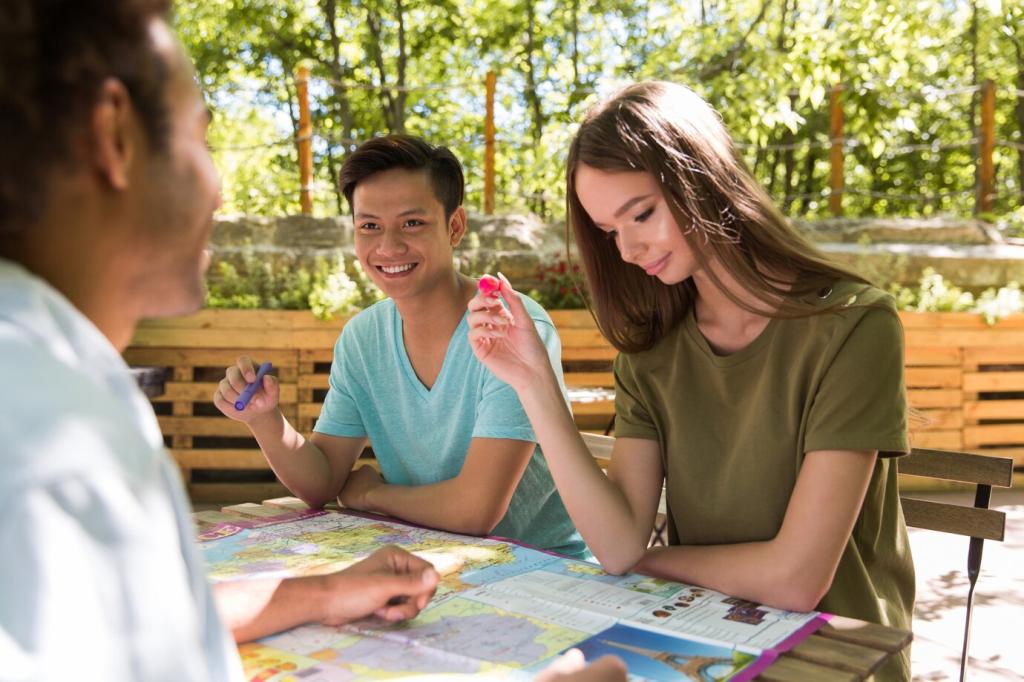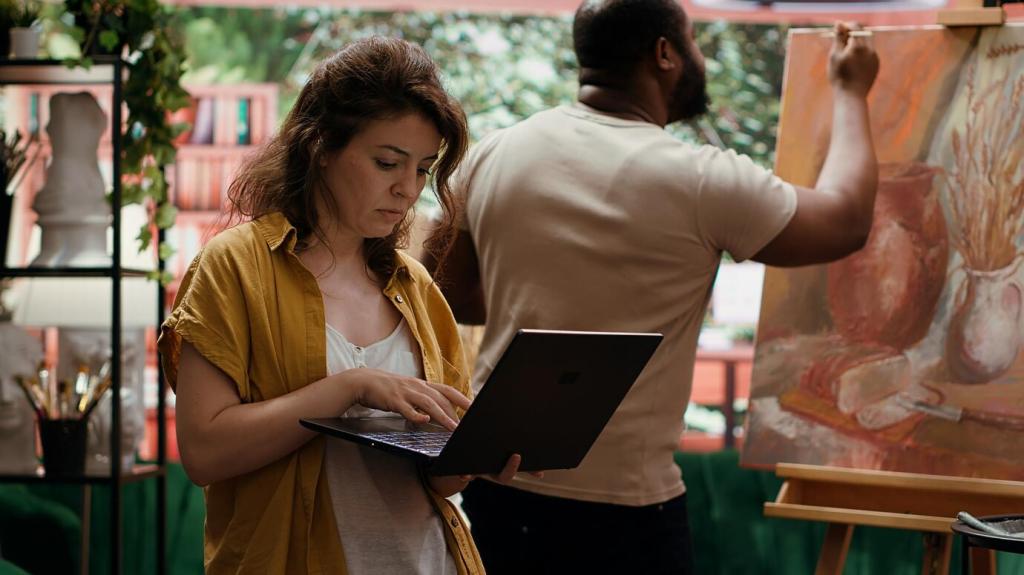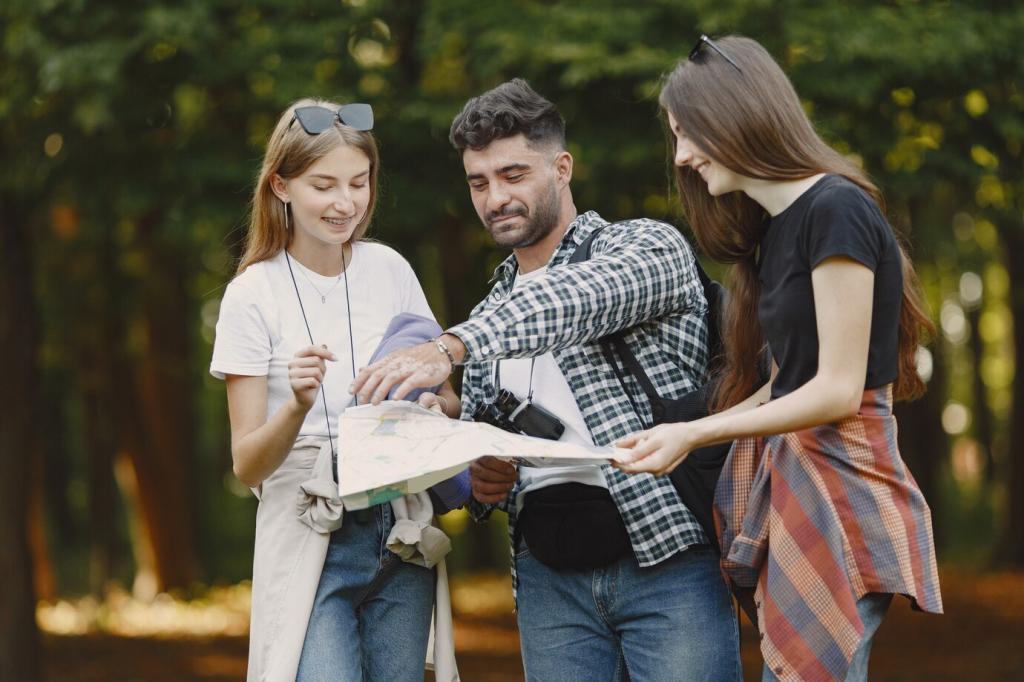Navigating Cultural Differences in the Tour Industry
Today’s chosen theme: Navigating Cultural Differences in the Tour Industry. Step into a world where cultural intelligence transforms ordinary trips into unforgettable journeys, building trust, empathy, and genuine connection between travelers, guides, and local communities.

Why Cultural Differences Matter on Every Tour
Respect as Your Competitive Advantage
When your team anticipates local norms—greetings, gestures, personal space—guests feel reassured, hosts feel seen, and itineraries flow smoothly. Respect reduces complaints, boosts word-of-mouth, and helps your brand stand out for the right reasons. Tell us where respect changed a tour for you.
Preventing Misunderstandings Before They Start
A few minutes of pre-briefing can prevent hours of awkwardness. From explaining dress codes to clarifying temple rules, proactive guidance protects relationships, prevents delays, and protects your schedule. Share your pre-tour briefing tips in the comments so others can learn and subscribe for more.
Local Partners as Cultural Anchors
Local guides and community partners carry knowledge you cannot Google: timing for festivals, unspoken etiquette, and subtle language cues. Treat them as co-creators, not vendors. Ask questions, listen closely, and credit their input. How do you collaborate with local partners for culturally sensitive tours?
In high-context settings, meaning lives between the lines—pauses matter, silence signals reflection, and yes may mean maybe. Train guides to notice indirect cues, avoid rushing answers, and summarize agreements gently. Comment with a moment when reading the room changed the outcome on a tour.
Communication Styles: High-Context, Low-Context, and Everything Between

Include time for adapting: remove shoes, cover shoulders, and pause for quiet. Provide shawls or socks to make compliance easy and respectful. Give context for rituals before arrival. What small amenities would you include to help guests comply with sacred site expectations effortlessly?

Some cultures prioritize punctuality; others prioritize relationships and flexibility. Build buffers, offer optional blocks, and communicate expectations kindly. By planning for both, you keep harmony and avoid rushing elders or hosts. Share how you balance punctual itineraries with human connection on tour.

Seating arrangements, handshakes, and hosting roles vary widely. Prepare alternatives that respect local customs while safeguarding guest comfort. Train staff to offer choices discreetly. Have you introduced subtle seating options or greeting alternatives that honored both culture and inclusivity? Tell us how.


Dining, Tipping, and Money Etiquette
In many regions, sharing signals trust and inclusion. Explain how to serve, when to start, and what to do if guests have allergies. Provide simple cards in local language for dietary notes. What’s your best story of turning a complex shared meal into a relaxed, inclusive experience?
Dining, Tipping, and Money Etiquette
From no-tipping norms to fixed percentages, guidance prevents offense and protects workers. Share a simple chart in pre-trip materials and remind guests discreetly on-site. Do you round up, pool tips, or tip individually? Tell us what works in your destinations and why, then subscribe for more insights.

Asking Before You Click
Model asking permission with a smile and a simple phrase in the local language. Offer alternatives when a no appears: a scene, an object, or a wider street view. Have you created a pre-tour photo pledge for guests? Share your wording that turns courtesy into a memorable ritual.

Sensitive Sites and Symbolic Meanings
Graveyards, memorials, and shrines may restrict photos or require specific angles. Provide clear briefings and small reminder cards. Encourage reflective silence after visiting solemn places. What signals do you watch for to recognize when photography would cross a cultural or emotional boundary?

Children, Vulnerable Groups, and Power Dynamics
Images can expose people to risk. Set rules against photographing children without guardian consent and avoid poverty-porn framing entirely. Encourage storytelling that centers dignity and agency. How do you coach travelers to document responsibly while preserving the humanity of those they meet?
Training Guides and Building On-Tour Playbooks
Create short, destination-specific modules: do’s and don’ts, key phrases, dress expectations, and holiday calendars. Use stories, not just rules, so details stick. Would you like our printable checklist template? Comment yes, and we’ll share a subscriber link in our next cultural intelligence update.

Stories from the Road: Small Missteps, Big Lessons
A Gift Given Twice
A guide once offered a host a pen, only to have it gently refused three times. On the fourth offer, the host accepted—custom required polite refusal before acceptance. Since then, the team teaches the ritual to guests, turning awkwardness into a shared smile. Share your favorite ritual story.


Scheduling with Ramadan in Mind
A desert tour nearly clashed with iftar. The operator shifted sunset timing, added dates and water, and invited respectful quiet before the meal. Guests called it the journey’s most meaningful moment. How do you align itineraries with sacred calendars without turning faith into a spectacle?
